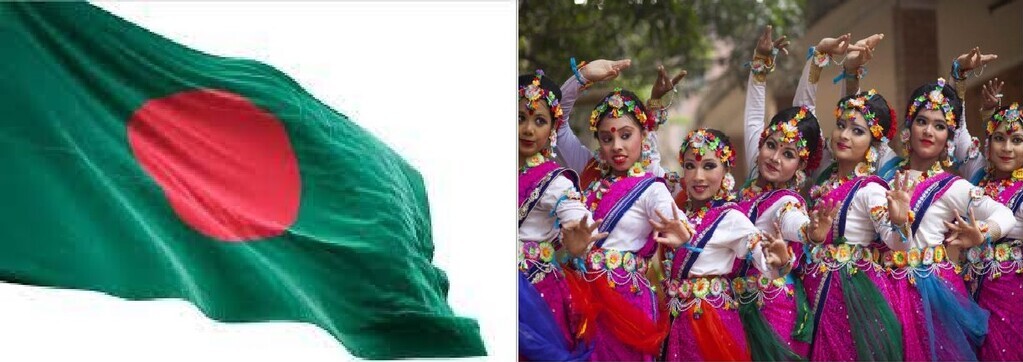The country of Bangladesh is located in the southern part of the Asian continent, and the majority of its population is Muslim. Join Saed News to learn more about the customs and traditions of the people of Bangladesh.

Bangladesh, officially known as the People's Republic of Bangladesh, is a country in South Asia. It is bordered by India to the north, east, and west, and by Myanmar to the southeast, while the Bay of Bengal lies to its south. The capital city is Dhaka, and with a population of 164 million, it is the eighth most populous country in the world. The official currency is the Bangladeshi Taka, and the official language is Bengali. Formerly known as East Pakistan, Bangladesh became an independent country following the Bangladesh Liberation War with support from India, separating from what was then West Pakistan (now Pakistan) on March 26, 1971.
The dominant religion in Bangladesh is Sunni Islam, although there are approximately 1.5 million Shi’a Muslims in the country. Unlike some regions where Islam spread through conflict, in Bangladesh it was primarily introduced through traders and Sufi missionaries, and accepted willingly by the people. Because of its Sufi roots, Bangladesh is home to various Sufi orders, such as Deobandi and Ahl-e Hadith, both of which stem from the Hanafi school of thought. The official language is Bengali, which belongs to the Indo-Aryan language family and has its own unique script. English is widely used in higher education and the judiciary, and is considered a second language among the middle and upper classes. Around 98% of the population is ethnically Bengali.

Bangladesh is one of the most populous countries in the world, with 90% of its population identifying as Muslim, most of whom follow the Hanafi school of thought. Ramadan is deeply respected in Bangladesh, bringing a unique sense of enthusiasm and spirituality. A common tradition is to break the fast (iftar) in mosques, where simple meals are served alongside religious programs and prayers. Interestingly, although dates do not grow locally, no iftar table is without them during Ramadan. Sunni Muslims generally break their fast and pray Maghrib in the mosque but perform the Isha prayer at home. The Taraweeh prayer is especially significant during Ramadan: Hanafis perform 20 rak'ahs, while Ahl-e Hadith usually perform 8. Hanafis also recite one and a half juz' of the Qur'an during Taraweeh, whereas Ahl-e Hadith typically do not complete a full juz’.

The most important celebration in Bangladesh is Eid al-Fitr, during which everyone wears new clothes and prepares special traditional foods. The main doctrinal difference between Sunnis and Shi’as in Bangladesh relates to Imamate (leadership). The Shi’a population is a very small minority, estimated to be about 30,000 out of 180 million people, yet love for the Ahl al-Bayt (Family of the Prophet) is widespread among all Muslims in the country. Shi’as hold Laylat al-Qadr ceremonies on the 19th, 21st, and 23rd nights of Ramadan, while Sunnis generally observe it on the 27th night.
Food etiquette is one of the earliest cultural practices taught to individuals. Interestingly, dining customs vary depending on the setting. While cutlery (spoons, forks, knives) is commonly used in formal settings and is the norm in many places, not all countries follow this standard. In many African and Southeast Asian cultures, eating with the hands is a formal tradition, and deviating from it may even be viewed as disrespectful. Eating with hands has its own etiquette, the most important of which include:

Washing hands before meals, traditionally done with a pitcher and basin, is a key step. Even though modern sinks and plumbing are available, using the traditional pitcher is seen as a gesture of respect, especially when serving guests.
The right hand must always be used to eat. Using the left hand, even to touch food, is considered highly disrespectful.
This tradition is deeply held in many parts of Asia and Africa, unlike in North America and Europe, where it is not commonly practiced.

Bangladesh is the eighth most populous and one of the most densely populated countries in the world. It boasts a rich heritage in music, architecture, sculpture, and painting. Bengali literature has been significantly influenced by Persian language and literature. Despite being a very poor country with a per capita gross income of $4,550, this figure is steadily increasing. Bangladesh is classified among the Least Developed Countries (LDCs).
Let me know if you'd like me to translate the final section on Mauritania and its cultural traditions as well.

